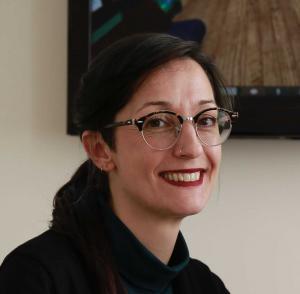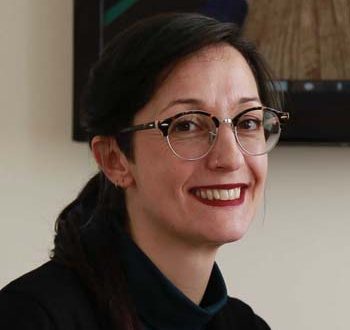
Our blog this week is an interview with the Head of Research at Zeeko Dr. Marina Everri. Appointed in September 2017 as a Horizon 2020 SME Innovation Associate, Marina is an Italian native who as you will see, has a wide and varied research background and is passionate about understanding the impact that technology is having on the lives of young people. Marina’s role in Zeeko involves investigating the side effects of virtual reality technology on child development and parent child communication.
Marina, tell us about your academic background and why you are interested in the impact of technology on young people?
I have a background in social psychology, a branch of psychology aimed at studying the relationships between individuals and societal aspects, such as: migration, technological, economic and political change. While studying for my master’s in psychology I became more and more interested in how societal changes impacts the lives of families and children. In my PhD dissertation I investigated how parents and children face the challenges of adolescence: more negotiations, more requests of autonomy, increased parental concerns etc. The more I studied families over the last number of years (from 2007) the more I noticed the relevance of the internet and digital technologies in families' lives. I carried out ethnographic observations in almost 100 families over the years, interviewed their children and talked to teachers. As digital technologies have become increasingly ubiquitous, I am curious to understand how technologies are shaping our lives and how we can harness the opportunities.
What attracted you to this research role with Zeeko?
I wanted to have the possibility to transfer the results of my research into something more tangible, beyond the classical transfer of knowledge through scientific publications or presentations at conferences. In addition, I wanted to work in a context where I could interact with people who have different competences such as in Zeeko, where I can work with game developers, product designers, business experts. I see this as a challenge but also as an opportunity to learn from an organisational culture which puts innovation and research at its core.
How do you see the link between research and practical application in young people's everyday lives?
I think the results of scientific research can inform the development of better programs for providing children and their parents with more skills, for instance on how to deal with internet risks. There is an urgent need to open the dialogue among different institutions (educational, political, industrial) for the sake of children in today's society.
If you had one piece of advice to offer parents and teachers about managing children's use of technology what would that be?
I think my main advice concerns communication. It might be trivial, but I believe parents have a very powerful tool in their hands, namely they have the opportunity to talk to their children, go out together for a walk or a bike ride, go to the cinema, theatre, museums. In a word, they should spend good quality time together. Today's parents are very busy, but it is important to consider the quality of the time spent together and not just the quantity!
As part of a good 'family communication strategy' parents should create limitations especially when children are young, e.g. setting a time limit for screen devices as well as monitor access to internet, but at the same time provide opportunities for experimentation, allowing children to do some activities on the internet under supervision, either together like watching a video on YouTube and showing them what to avoid in order to be safe when going online.
What do you see as the big research topics in relation to the use of technology in the next 10 years?
Well, we as humans have a strong need to communicate and socialize. It's difficult to foresee what the next technology available on the market will be. For sure devices that are portable and platforms that continue to support our communication needs will be successful because they complement our 'ancestral' need to stay connected to one another!
As for the direction that research will take, I have the feeling that there will be the need to better understand the processes of human-computer interactions, namely the ways in which we, as human beings are resisting, transforming, incorporating technologies in our everyday life routines and tasks at home, school, workplace as well as in our intimate relationships.
Explore Zeeko’s Home Page to discover our mission on the About Us Page, innovative Phone Blocking System, and engaging Phoenix Quest 10 programme. We provide Internet Safety Seminars, the Zeeko Report Card, and the Magical Leaders Choose Country initiative, alongside insights from our Digital Trend Report. Stay connected with us on Facebook and Instagram for updates.

